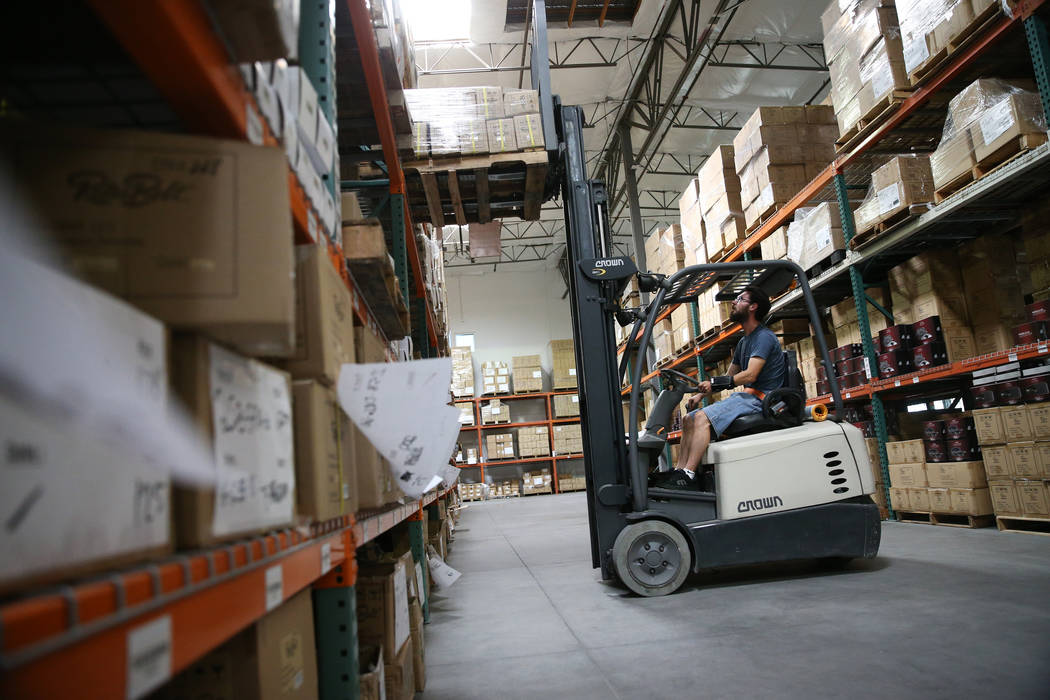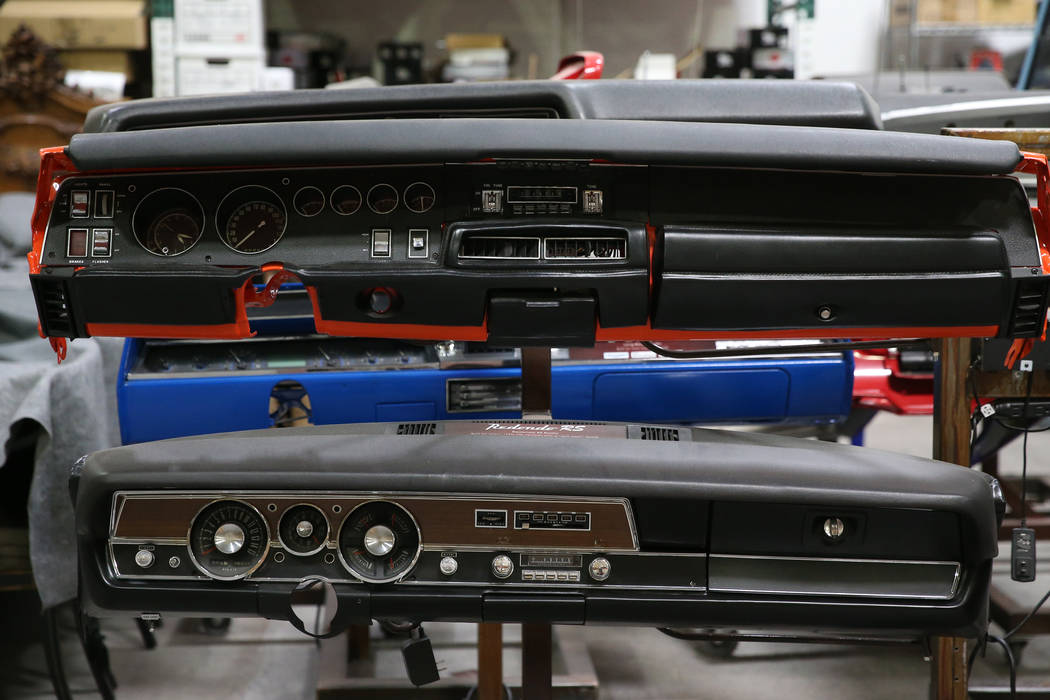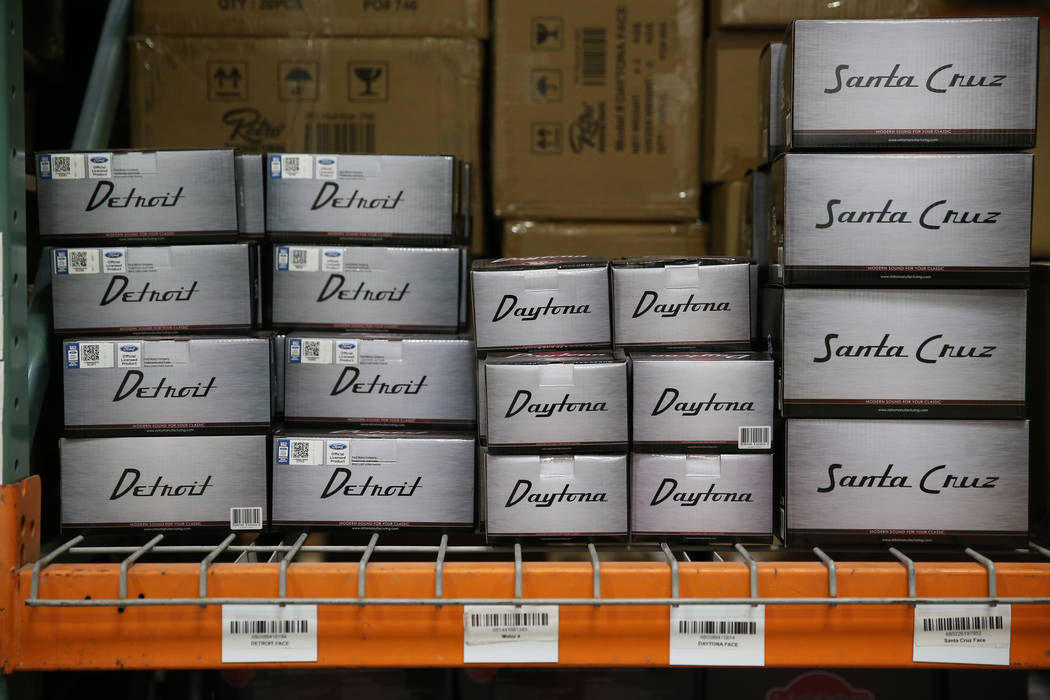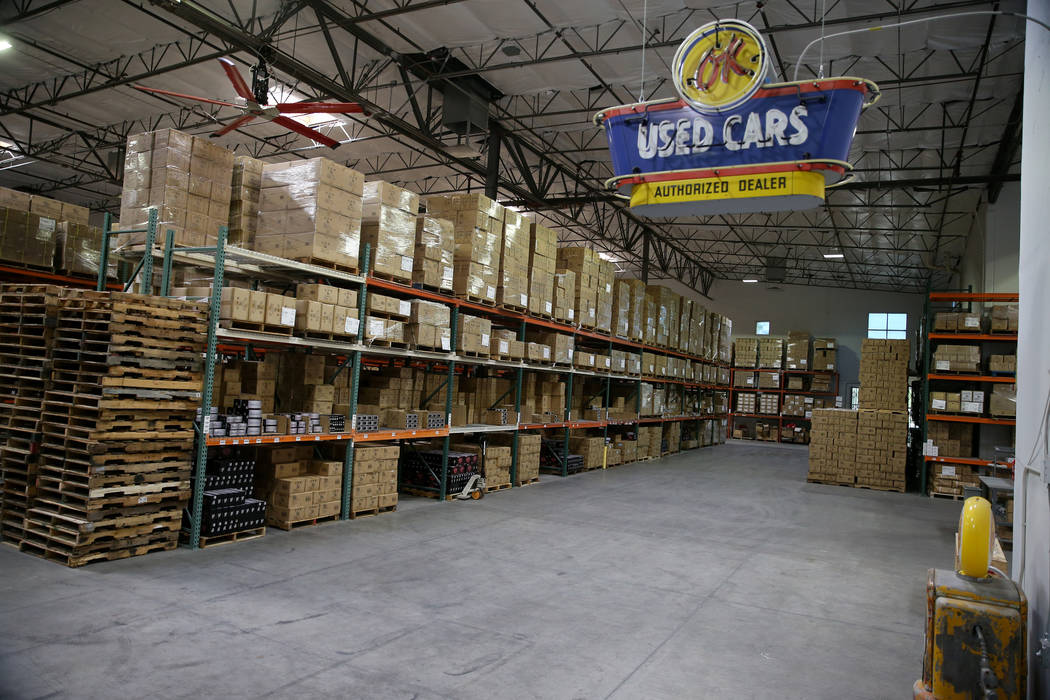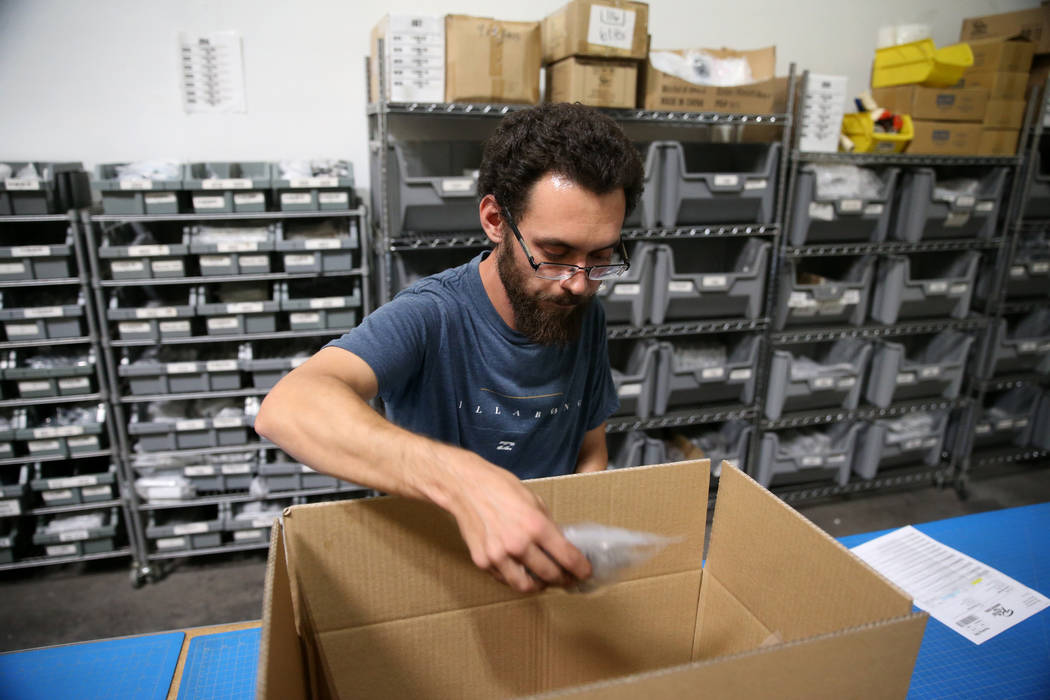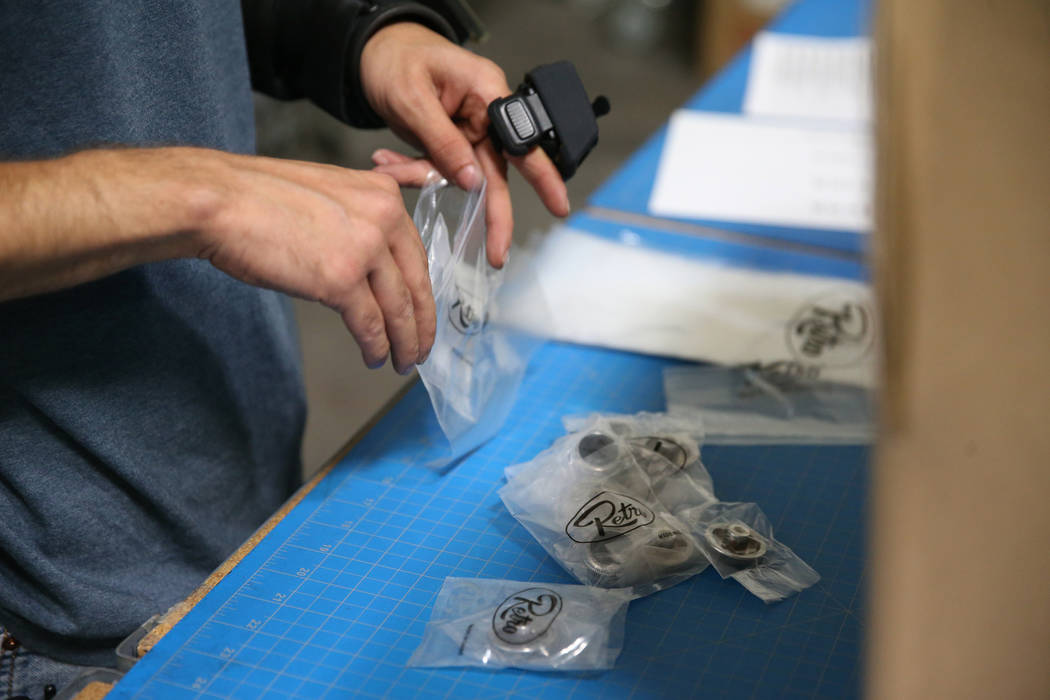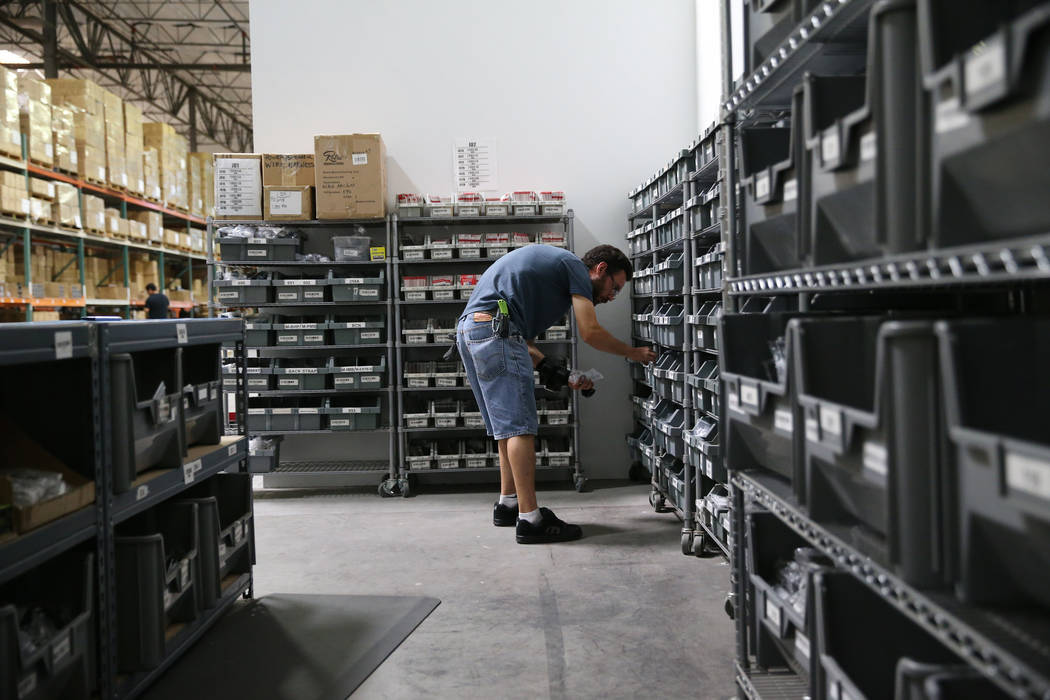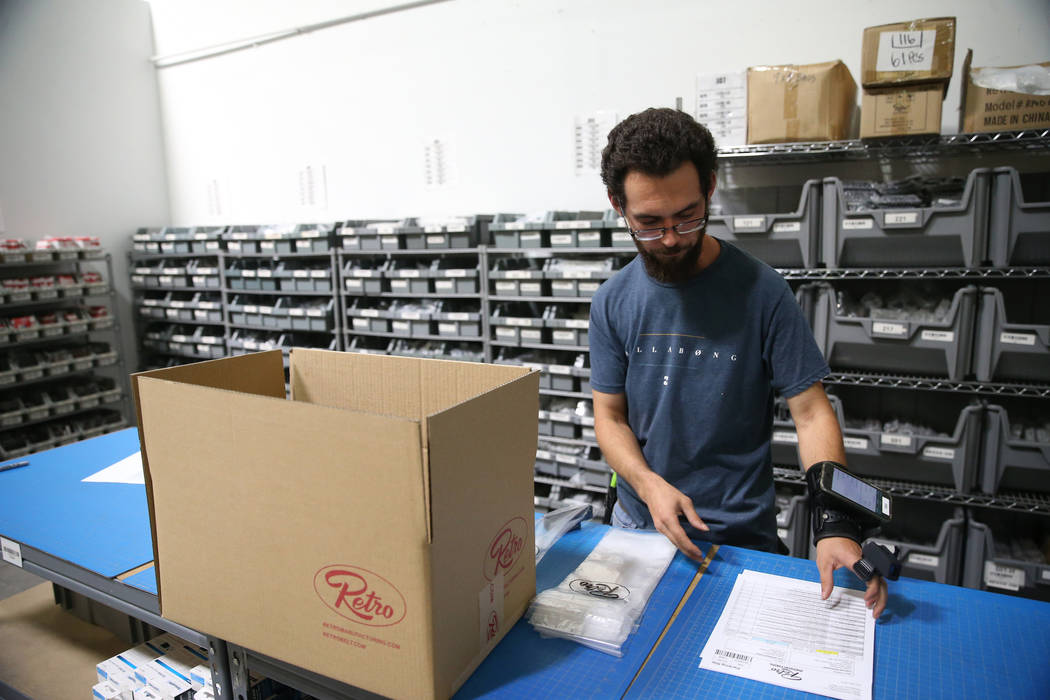Some Clark County businesses can avoid costly China tariffs
When President Donald Trump started hinting at placing tariffs on Chinese imports last year, the owners of Retro Manufacturing knew their business model had to change.
The Henderson-based company is a leading supplier of audio components designed for classic cars and imports about 95 percent of its materials from China — all of which are subject to a 25 percent tariff.
“We knew we had to find a solution,” said Chief Operating Officer Tammi Harrington, who started the company in 2007 with her husband, Steve.
Businesses facing tariffs are often faced with two choices: raise prices, or take a hit to their bottom line. Harrington found another way to cut costs.
In April, the company received approval from U.S. Customs to be designated as a Foreign Trade Zone, or FTZ — an area where commercial merchandise can be held without being subject to certain tariffs and taxes. Harrington estimates the company can save close to $500,000 a year by avoiding the costs.
With rising trade tensions between the U.S. and other countries, experts say more local companies are showing interest in the program through the business grapevine.
An uptick in interest
The FTZ program started in 1934 — in the midst of the Great Depression— and was designed to create jobs, encourage international trade and stimulate economic development, according to David Harlow, president and CEO of international trade consulting firm ITC-Diligence Inc.
The zones are geographical areas in or near a U.S. port of entry and authorized by the federal government. Inside such zones, both foreign and domestic merchandise is treated as if it were outside U.S. Customs territory.
There are two FTZs in Nevada: one in Southern Nevada and one in the north. Four companies in the southern half of the state are taking advantage of the zones, according to Harlow, but every business in the state has access, though they might not know it.
“It requires nonprofits or trade associations and the private industry to promote,” he said. “It’s a hidden gem.”
It isn’t widely promoted by the federal government, but organizations like the Las Vegas Global Economic Alliance have been raising awareness of the program by discussing it with local business owners. If the business seems like a good fit, the alliance conducts a cost benefit analysis with the company and helps it understand how the FTZ could contribute to their bottom line.
As U.S. trade tensions with China and other countries escalate, more companies are showing interest, said Perry Ursem, vice president of retention and expansion for the alliance.
Stu Spikerman, president and CEO of Los Angeles-based Tri-Link FTZ — which offers FTZ-designated warehousing — has seen an increase in interest. His company is set to open another third-party logistical FTZ warehouse in September, the first in Clark County in about five years.
The company will provide warehousing and logistical services for several clients. Goods held in some of his company’s FTZ warehouses in other states include sugar, plywood and electronics.
“We see enormous potential for Las Vegas,” he said. “Las Vegas is booming. You have lots of businesses coming in.”
Harlow said the state was in need of a program that provides small- to medium-sized businesses with FTZ warehouse services.
Application process
Spikerman said he’s gearing up to pursue local businesses in Southern Nevada.
“We want them to become subcontractors,” he said. “We want them to take advantage of the benefits. Most people don’t know about them.”
Harrington said other business owners might not take part in the zones because they’re convinced the tariffs are going away soon, or they’re uninterested in going through the regulations and paperwork required to join.
“It is a rather daunting application process,” she said.
If companies want to designate their facility as an FTZ, Spikerman said, the process can take up to nine months and cost anywhere from $50,000 to $75,000. The companies must also post a $400,000 operator’s bond and eventually pay anywhere from half to the full amount in collateral.
But Spikerman said the zones don’t solve everything, especially with goods imported from China.
The tariffs placed on Chinese goods fall under privileged foreign status. Usually, companies can save money by importing goods from other countries into a FTZ and lower the duty owed by manufacturing their product on the site. But privileged status tariffs, like the ones placed on China, keep the same duty rate as the initial goods.
“The interesting thing about this is while the tariffs impact us, we support them,” Harrington said. “We think they strengthen U.S. business, especially when it relates to intellectual property.”
In the meantime, Harrington said the trade zone designation is helping.
“We’re saving 25 percent on exports, which is huge,” she said.
Contact Bailey Schulz at bschulz@reviewjournal.com or 702-383-0233. Follow @bailey_schulz on Twitter



